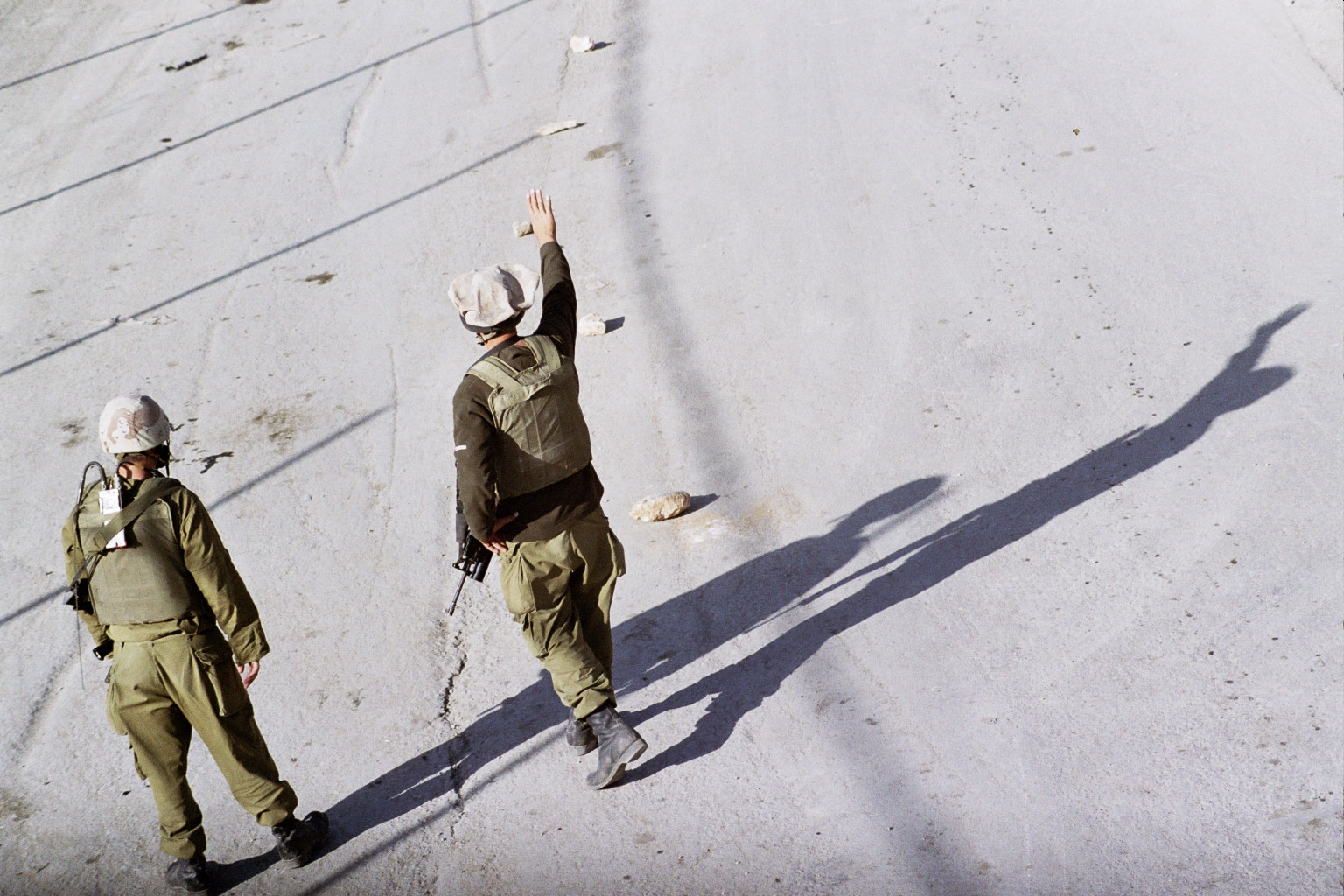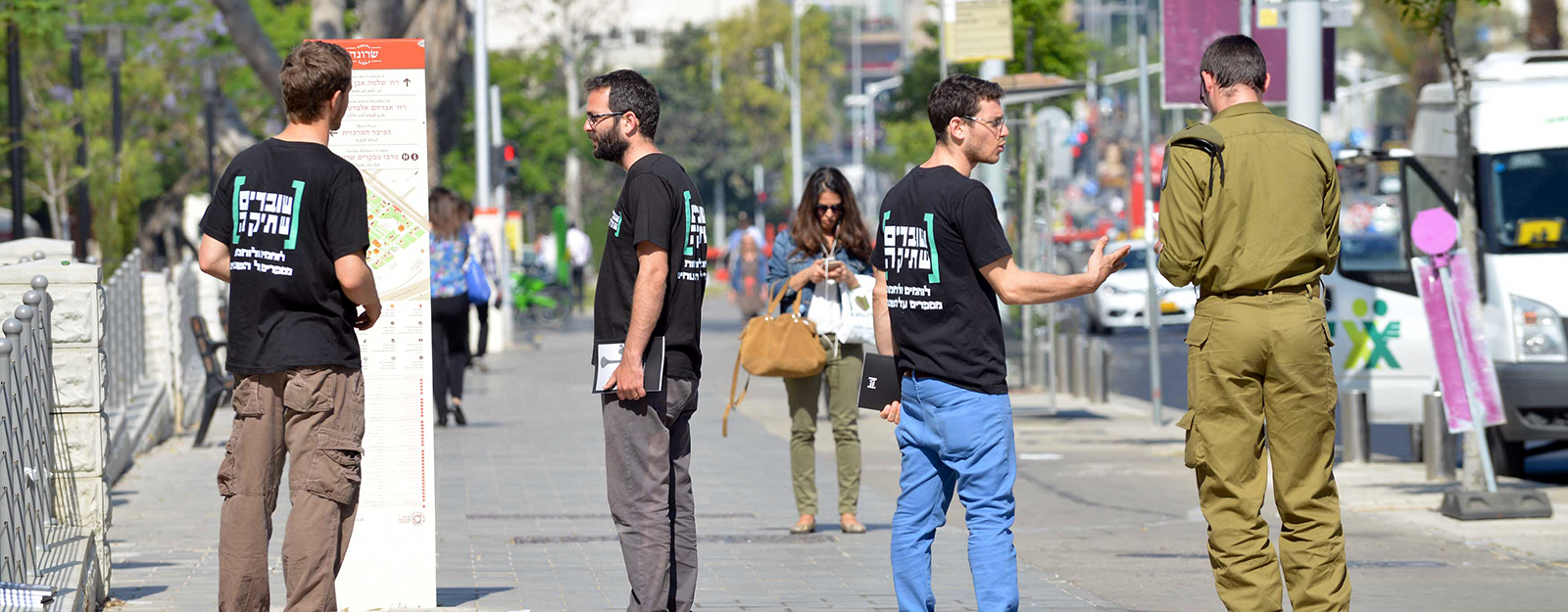About what? About the settlements and everything, and with what right they . . . I said to them, “Bottom line, you guys are criminals, you’re breaking the law, it’s illegal for you to be here.” They said, “We stretch the law, the law will bend according to what we do. We stretch it.”
Who said that? One of the guys there at Avigail Farm. The settlement security coordinator there.
What does that mean, “We stretch the law”? How did he explain it to me? There’s the role of the regional council. They’re a group of idealists. Settlers come to the head of the council—I don’t remember what the council’s called, Mount Hebron I think, or South Hebron Hills—and they say, “We want to establish a settlement, give us a place to do it.” They came and looked for a place with the Ministry of Defense. Wait a minute—the settlers said there’s a place, but they hadn’t received building permits from the Ministry of Defense yet. But they already started building, the permits will come at some later point. That’s it, they start building, and there they are. Maybe now they have permission to be there, but back then the settlement location wasn’t approved by the Ministry of Defense. That settler called it stretching the law, “We establish the facts on the ground, and they’ll accept what we do.” Of course, there’s a lot of tacit agreement, a lot of corruption, you could call it the Ministry of Settlements and Defense.
When you were at Avigail Farm, what kind of structures were there? There was a water tower, two caravans, some house they’d built, and an abandoned bus, where a girl lived.
A girl? Yes, a woman and five boys or so. And aside from that, they were a really nice group of people, you know, really great. They didn’t seem like the type of people who uproot olive trees and beat up Palestinians or chase after them. They just wanted to establish a settlement, they didn’t care what might happen along the way as a result. They’re not directly aggressive. I just remember the settlement security coordinator coming and saying to me, “Here, this is our territory, and here they can work.” When he briefed the soldiers, it was like, “We have trees here, and sometimes on Fridays all kinds of organizations come, all kinds of organizations that work with Palestinians, and they come to harvest the olives, to show that it’s theirs. But it’s not theirs, so you have to get them out of there.” If I’m not mistaken, that Friday people came, and we chased them out, saying “Leave, leave.”
Did you know who the olive trees belonged to? I didn’t know, I relied on the security coordinator.
Was there an officer with you? Yes, there was an officer there.
What did he say? When I got there, I got my briefing from the settlement security coordinators. I was the commander in the area, and the settlement security coordinator was the authority on what was allowed or not.
He gave you orders? He—you know, it’s not exactly giving orders. He defined things. He said, “This is our territory.” Bottom line, I never saw where any of this was written down or what was written down. To me, whatever he said was how it went.
And as the commander, how did you brief your soldiers? The briefing, “We are here in case the settlement is infiltrated. We guard in case of invasion. We’re like the defense.”
Were there any orders about the olive harvest? No, just in general to drive them out.
How did they react? After we expelled them? I don’t remember exactly, but there wasn’t too much friction. Really, none.
How many people came? Not too many. You could count them on your hand. Ten, maybe less. Not many.
You just told them, “You can’t be here, get out”? Yes. I don’t remember any argument.
How far was the field from the settlement? Not far. A hundred meters, really not far. It wasn’t a big field, it was small. Bottom line, we were there to prevent infiltration. We also did all kinds of other things: we walked around the hills to demonstrate a presence, we put up all kinds of targets in the forest, just the kind of stuff privates do.









 testimonies
testimonies  media & content
media & content 










 The settlement security coordinator told us what is allowed and what isn’t
The settlement security coordinator told us what is allowed and what isn’t 

 terms of use & privacy policy
terms of use & privacy policy